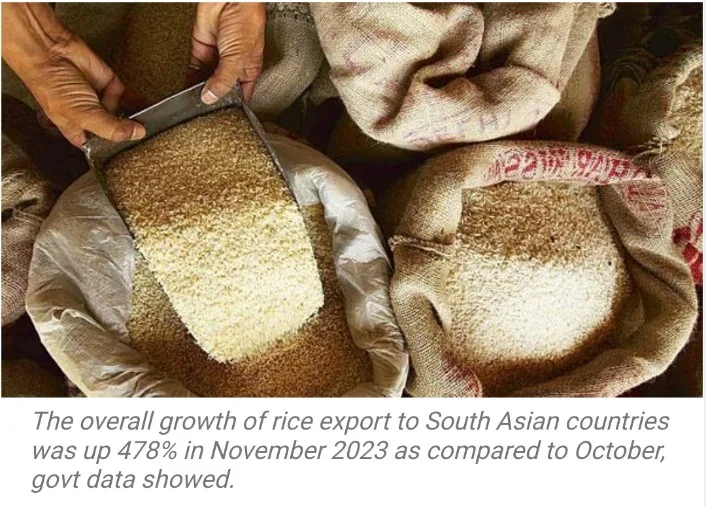New Delhi, Despite a ban on rice exports, India continues to exhibit generosity by providing essential food items to strategic partners, including Nepal, Bhutan, Sri Lanka, Maldives, Malaysia, Indonesia, Vietnam, Iran, and the broader ASEAN region. As per govt data reveals that rice exports to South Asian countries reached $567 million in the first eight months of the current fiscal year, compared to $1.24 billion in the same period last year.
In the case of ASEAN countries, rice exports amounted to $341 million from April to November 2023, down from $541 million in the corresponding period of 2022. Notably, these figures suggest that rice exports are taking place under bilateral arrangements, despite the ban.
The exports are facilitated by the National Cooperative Exports Ltd, a government body established to export agricultural produce and allied items. While the ban on rice exports was implemented to stabilize domestic prices and support essential food distribution, industry leaders praise the government’s efforts.
Rajnikant Rai, CEO of ITC’s agribusiness division, commended the government for keeping domestic prices in check and providing essential food to neighboring countries. Despite the ban, India has seen a surge in rice exports to countries like Iran, with a notable growth of 1,314% in November 2023.
The ban on rice exports was initiated due to a reduction in public stock in the Central pool, leading to a spike in staple food cereal prices. However, the strategic partners’ need for food has prompted exports under specific agreements, reflecting India’s commitment to regional cooperation.







